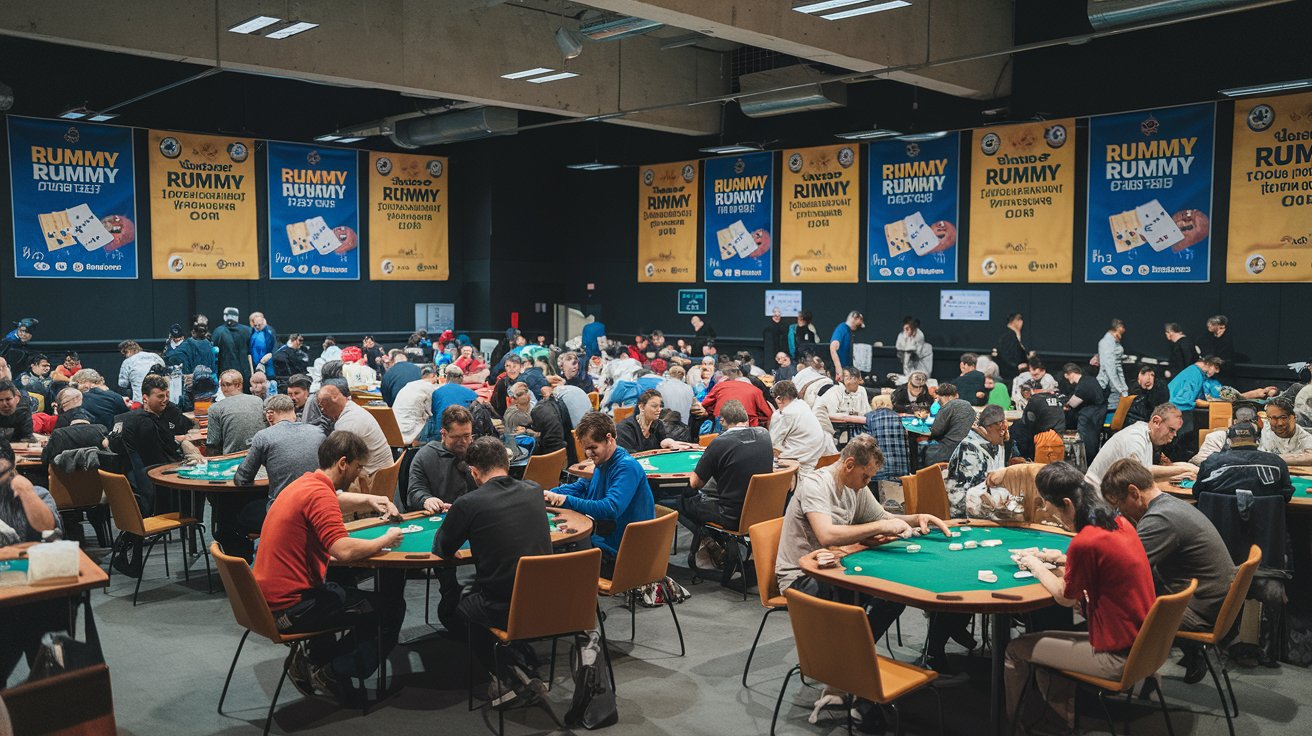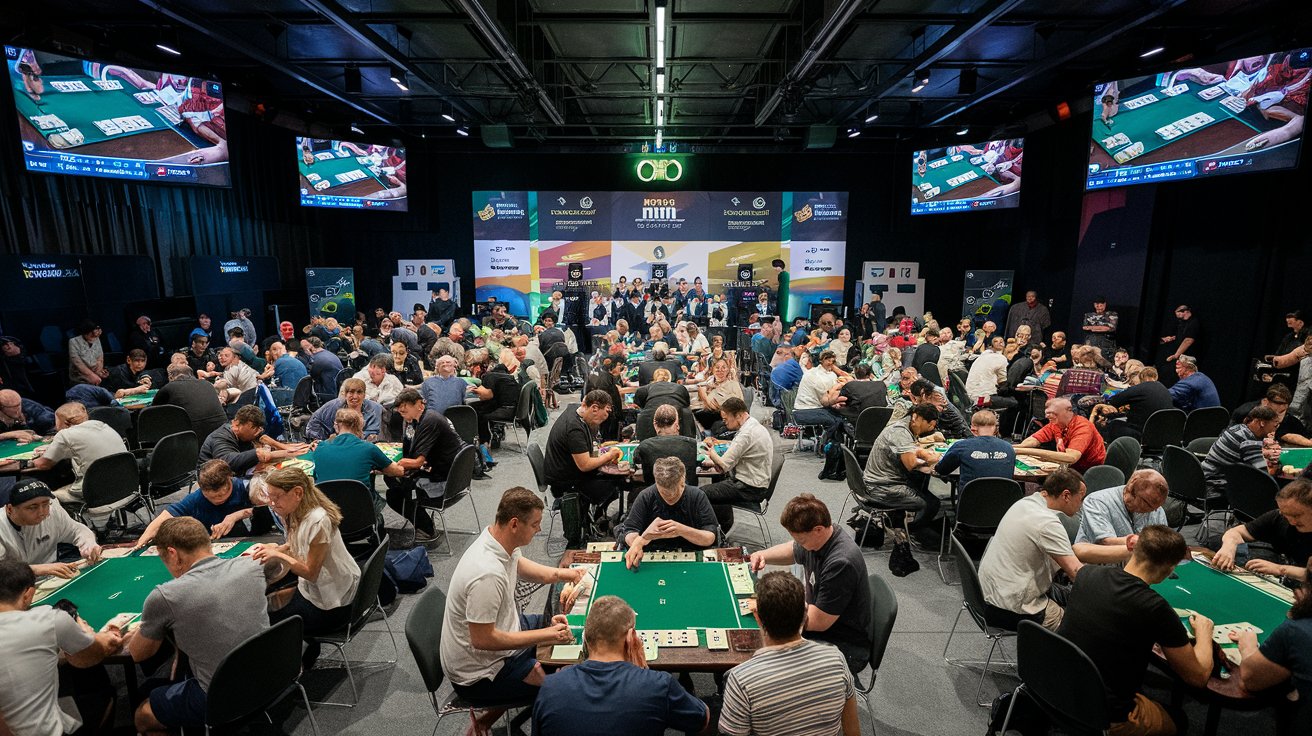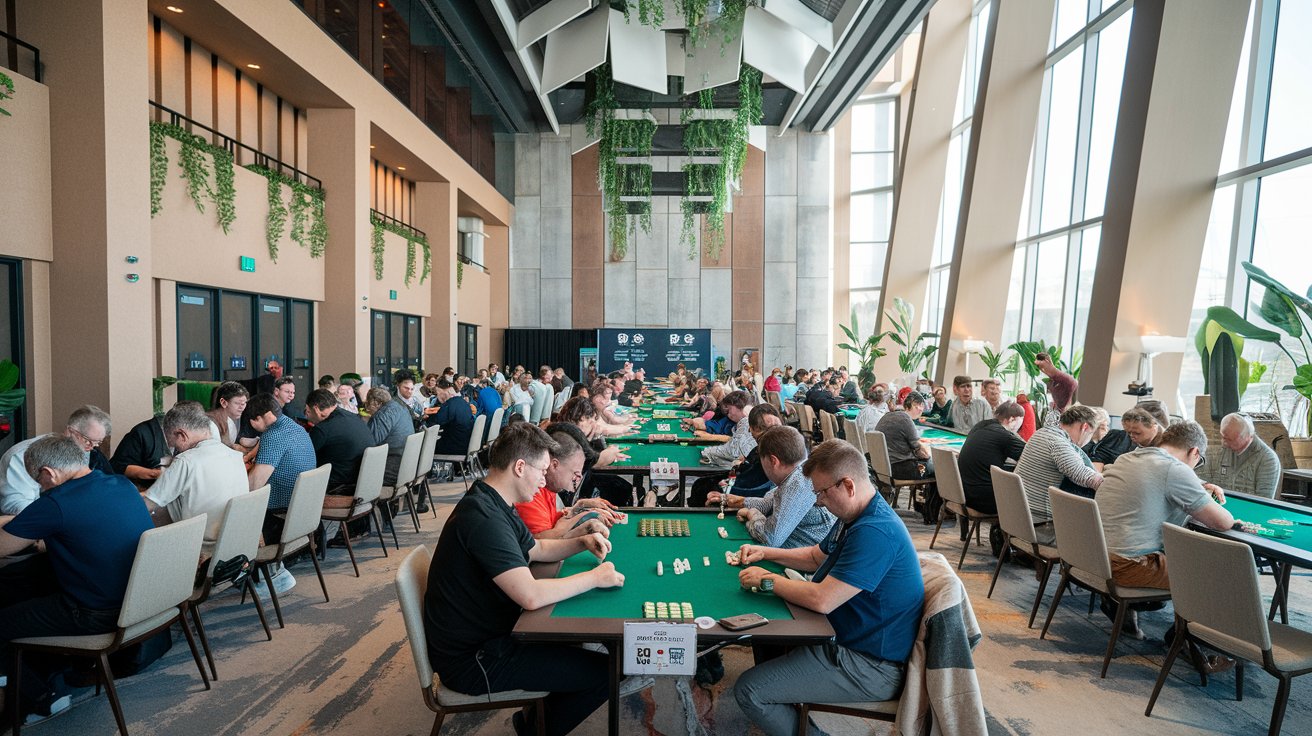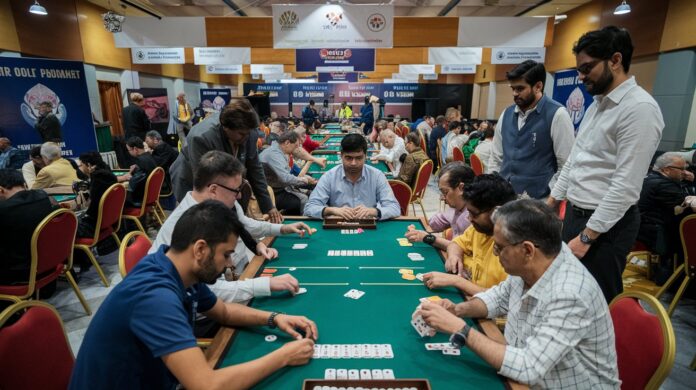In India, where traditions run deep and celebrations are grand, rummy has carved out a unique place in the cultural landscape. What began as a simple card game played around kitchen tables has evolved into something much bigger—rummy tournaments, bustling with excitement, strategy, and community spirit. These events, whether held in local clubs or on digital platforms, have transcended mere entertainment to become cultural phenomena, especially during festive seasons. In this blog, we’ll explore how rummy tournaments became a cultural event in India, weaving together tradition, competition, and modern innovation in a way that resonates with millions.
The Roots of Rummy in Indian Culture
To understand the rise of rummy tournaments, we first need to look at the game’s deep roots in India. Rummy, a skill-based card game involving forming sets and sequences, arrived in India through colonial influences centuries ago. Over time, it became a household staple, played during family gatherings, festivals like Diwali and Holi, and lazy Sunday afternoons. Its appeal lies in its simplicity—anyone can learn it—combined with its depth, which rewards strategy and patience.
In a country known for its love of community and competition, rummy was a natural fit. It wasn’t just a game; it was a social ritual, a way to bond, laugh, and challenge one another. This cultural grounding laid the foundation for rummy to grow beyond casual play into organized tournaments that now draw players from every corner of India.
From Kitchen Tables to Tournaments: The Evolution

The shift from informal rummy games to structured tournaments didn’t happen overnight—it was a gradual evolution fueled by India’s love for celebration and competition. In the pre-digital era, local rummy tournaments popped up in small towns and cities, often hosted by community clubs or during festivals. Picture a Diwali mela: amid the twinkling lights and firecracker bursts, a group of players gathers under a tent, cards in hand, vying for bragging rights and modest prizes like sweets or cash.
These grassroots events were more than competitions—they were social spectacles. Friends, neighbors, and even strangers came together, turning a simple card game into a shared experience. Word of mouth spread tales of local champions, and soon, rummy tournaments became a highlight of community gatherings, much like cricket matches or dance performances.
SEO Tip: Keywords like “rummy tournaments in India,” “cultural games India,” and “traditional rummy events” can attract readers interested in gaming history.
The Digital Boom: Rummy Tournaments Go Online
The real game-changer came with the advent of the internet and smartphones in the 21st century. Online rummy platforms like RummyCircle, Junglee Rummy, and Adda52 transformed the landscape, taking tournaments from local tents to virtual arenas. Suddenly, players didn’t need to wait for a festival or a club event—they could join a tournament anytime, competing with thousands of others across India.
This digital shift supercharged rummy’s cultural status. Online platforms introduced mega tournaments with hefty cash prizes, leaderboards, and festive themes, drawing in players of all ages. For example, a “Diwali Rummy Extravaganza” might offer lakhs in winnings, complete with virtual fireworks and festive avatars, blending tradition with modern flair. These events became must-join occasions, much like watching a Bollywood blockbuster on release day.
The accessibility of online rummy tournaments democratized the game. A farmer in Punjab could now face off against a techie in Hyderabad, all from the comfort of home. This inclusivity, paired with the thrill of competition, turned rummy tournaments into a nationwide cultural event.
SEO Tip: Use phrases like “online rummy tournaments,” “best rummy platforms,” and “rummy events India” to target digital gaming enthusiasts.
Festivals and Rummy Tournaments: A Perfect Pair

Indian festivals have always been about bringing people together, and rummy tournaments amplify this spirit. During Diwali, the festival of lights, playing cards is considered auspicious—a nod to Goddess Lakshmi, who blesses wealth and prosperity. Online platforms lean into this tradition, hosting Diwali-special tournaments with names like “Lakshmi’s Luck” or “Deepavali Dash.” These events draw massive participation, with players vying for prizes that range from cash to gold coins—echoing the festival’s focus on fortune.
Holi, with its playful energy, also sees rummy tournaments take on a festive twist. Platforms might offer “Colorful Cash Games” or “Holi Leaderboard Challenges,” where winnings come with a side of virtual gulal. Dussehra, celebrating victory, aligns with rummy’s strategic nature, inspiring tournaments themed around triumph and skill.
These festival-tied tournaments aren’t just about gaming—they’re cultural touchstones. They blend the nostalgia of traditional rummy with the excitement of modern competition, making them a highlight of the festive calendar. For many, joining a rummy tournament during Diwali feels as essential as lighting a diya or sharing mithai.
The Social Glue: Why Tournaments Resonate
What makes rummy tournaments a cultural event isn’t just the game itself—it’s the sense of community they foster. In a country as diverse as India, where languages, cuisines, and customs vary widely, rummy serves as a universal language. Tournaments, whether physical or online, bring people together in a shared pursuit of fun and glory.
Offline, tournaments are lively affairs—think of the chatter, the teasing, and the cheers as someone declares a win. Online, this camaraderie shifts to chat rooms and social media, where players swap strategies, celebrate victories, and plan rematches. X posts like “Just won my first Diwali rummy tourney—feeling on top of the world!” reflect the pride and connection these events inspire.
Rummy tournaments also tap into India’s competitive spirit. From chess in ancient times to cricket today, Indians love a good challenge. Rummy, with its blend of skill and luck, fits this mold perfectly, turning every tournament into a mini-battle of wits.
SEO Tip: Incorporate terms like “rummy community India,” “cultural events rummy,” and “rummy tournament stories” to highlight the social aspect.
The Role of Technology in Cultural Transformation

Technology hasn’t just scaled rummy tournaments—it’s redefined their cultural impact. Features like live leaderboards, instant payouts, and multiplayer modes have made online events slick and engaging. AI-driven matchmaking ensures fair play, while festive graphics and sound effects keep the cultural vibe alive.
Moreover, online tournaments have introduced a new layer of spectacle. Some platforms stream high-stakes finals, complete with commentary, turning top players into mini-celebrities. This gamification mirrors India’s love for drama and storytelling, making rummy tournaments feel like modern-day epics—think Mahabharata, but with cards instead of chariots.
The rise of mobile gaming has also made tournaments a year-round affair. While festivals remain peak seasons, daily and weekly events keep the momentum going, embedding rummy deeper into India’s cultural fabric.
Rummy Tournaments and Indian Identity
At their core, rummy tournaments reflect values central to Indian identity: community, resilience, and celebration. The game’s emphasis on skill resonates with a culture that prizes intellect—think of chess grandmasters or IIT prodigies. Yet its accessibility ensures it’s not elitist, welcoming players from all walks of life.
Tournaments also mirror India’s festive ethos. Just as Holi dissolves social barriers with color, rummy levels the playing field with strategy. Just as Diwali celebrates light over darkness, rummy tournaments celebrate victories big and small. This alignment with cultural ideals has elevated tournaments from casual games to events that feel distinctly Indian.
Voices of the Players: A Cultural Snapshot
To see rummy tournaments through Indian eyes, let’s hear from the players. Priyanka, a 32-year-old from Jaipur, recalls her first online tournament: “It was during Diwali 2022. I joined a free event on my phone and won 500 rupees! It felt like a festival bonus.” For her, rummy tournaments are a modern extension of family traditions.
Then there’s Ravi, a 50-year-old from Madurai, who organizes local tournaments. “We’ve been doing this for 20 years,” he says. “Now, the kids play online, but they still join us for the big Diwali game. It’s our way of staying connected.” These stories show how tournaments bridge generations, keeping rummy’s cultural flame alive.
The Future of Rummy Tournaments in India
As India races into the future, rummy tournaments are poised to grow even bigger. Virtual reality could soon bring immersive card tables to living rooms, while AI might offer personalized challenges. Yet, the cultural core—community, festivity, and skill—will remain unchanged.
Online platforms are already experimenting with regional flavors, like Tamil Nadu-specific tournaments or Bengali New Year events, tailoring the experience to India’s diversity. This evolution ensures rummy tournaments stay relevant, reflecting the nation’s dynamic spirit.
Tips to Join the Rummy Tournament Craze
Want to experience this cultural event for yourself? Here’s how:
- Start Small: Try free online tournaments to build confidence.
- Pick Festive Times: Join Diwali or Holi events for extra fun.
- Learn the Game: Brush up on rummy rules and strategies online.
- Host Your Own: Organize a local tournament to bring friends together.
Conclusion: A Cultural Crown for Rummy
Rummy tournaments have become more than a game in India—they’re a cultural event that blends tradition with modernity. From humble beginnings in village squares to high-stakes showdowns on digital screens, they’ve captured the nation’s heart, offering a space for connection, competition, and celebration. Rooted in India’s love for community and festivity, these tournaments are a testament to how a simple card game can evolve into a cultural icon. So, the next time you hear about a rummy tournament—online or offline—join in. You’re not just playing a game; you’re stepping into a vibrant slice of Indian culture.

Zareb Saleh is a journalist at Gulf Today and a ghostwriter for Gameoholic, specializing in gaming, technology, and digital culture. With a keen eye for industry trends, he delivers insightful stories that engage and inform readers.




